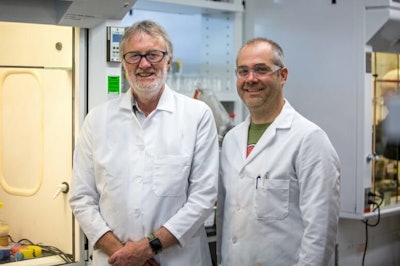
Everyone’s heard of Tylenol, the over-the-counter analgesic that relieves pain and reduces fevers. The branded drug has been around since 1955, and it’s been made the same way ever since. Until now. A recent W News article reported that a team of biochemists at the University of Wisconsin Madison has discovered a way to synthesize acetaminophen, the active ingredient in Tylenol, from a natural plant compound rather than fossil fuels. They essentially created a renewable alternative to the current process that uses chemicals derived from coal tar.
The team used lignin, a plentiful but hard to work with component of plant cell walls. When plan sugars are used to create biofuels, the leftover lignin is usually burned for energy. The team’s patent describes how to convert a molecule found in lignin into acetaminophen. They’re now working to refine the process to increase yield and purity of the product.






















